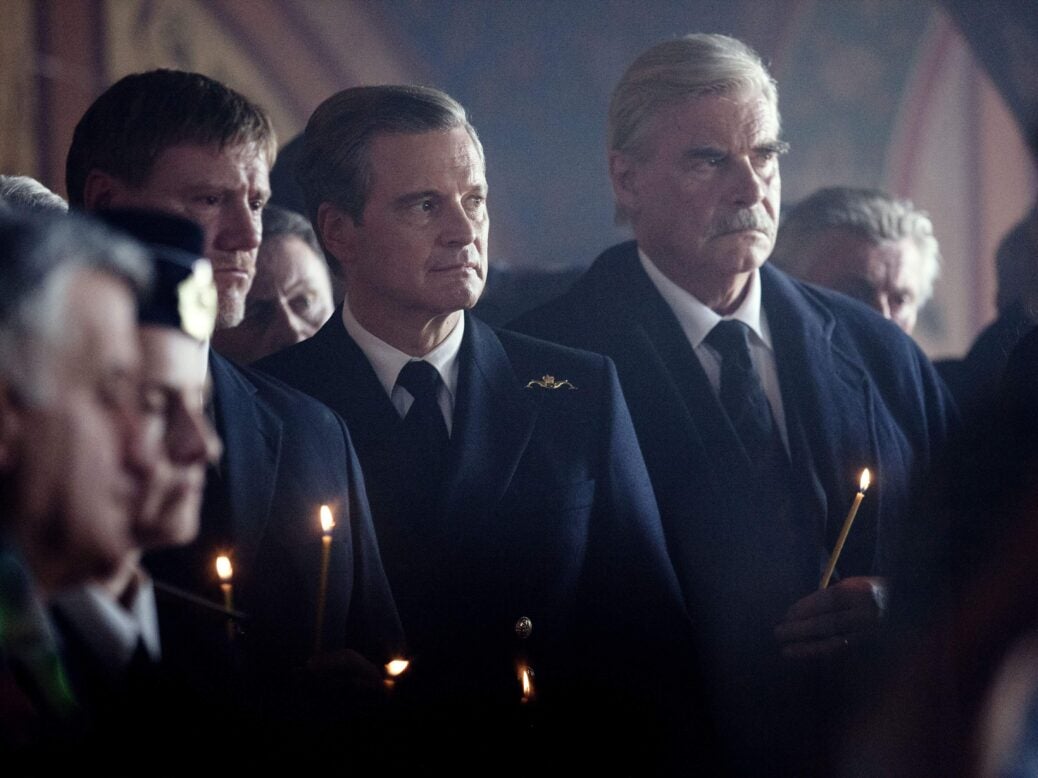
Spear’s meets David Russell, the Royal Navy submariner in charge of the British response to the Kursk submarine disaster. He talks to Arun Kakar as a new film of the events is released
The catastrophic sinking of the Kursk, Russia’s most advanced nuclear submarine, remains one of the most compelling and tragic chapters in recent naval history. The submarine, hailed as ‘unsinkable’, was the length two jumbo jets and the country’s most technically advanced vessel to date. At 16,000 tonnes it weighed the same as four Royal Navy Type 23 frigates; and it was fitted with two nuclear reactors.
The pride of the Russian navy, it was named in honour of the city where in the Second World War Russia stemmed the advance of the Nazi war machine – but at the cost of 250,000 Russian lives, an engagement since recorded as the largest tank battle in history.
But on 12 August 2000, during the first major Russian naval exercise in 10 years, the Kursk suffered a dramatic explosion and sank, killing all of its 118 personnel.
The disaster and its aftermath have provided the basis for speculation and conspiracy. The official version is that an explosion measuring 4.2 on the Richter scale tore through the vessel’s steel nose. It then took 16 hours for Russian authorities to find the sunken submarine. At first President Vladimir Putin refused to cut his holiday short to attend to the disaster. Eventually, the Russian navy was given permission to accept British and Norwegian assistance some five days after the incident.
Now, the story heads to the box office in Kursk: The Last Mission, starring Colin Firth and directed by Thomas Vinterburg (the Hunt), a brutal and uncompromising retelling of the events surrounding the disaster and the human tragedy it entailed.
Firth plays David Russell, the Royal Navy commodore who tries to convince the Russians to accept British assitance, while Lea Seydoux and Max von Sydow also star. Spear’s hears from David Russell to get a first person perspective on the naval disaster, and to understand more about the film’s production.
Spear’s: What was the Kursk disaster, and what was your involvement in it?
David Russell: The Kursk was Russia’s latest and most powerful submarine in many ways. It was on an exercise and they suffered a massive failure with one of their torpedoes: some hydrogen peroxide leaked and caused a big explosion, which led to a fire in their torpedo storage compartment, a big compartment the front of the submarine. That holds more torpedoes and missiles and that set off a second explosion, which registered on the Richter scale, killing everybody on board, apart from about 23 people who we found out later who had survived in the after compartments.

In the UK, I heard of this and was the Deputy Flag Officer Submarines, a commodore working in Northwood headquarters. We learned about the incident on Monday morning. We fortuitously had all our submarine escape equipment and people on the road. They were going to a ship in Portsmouth to go on an exercise in the Mediterranean, so we turned them around. I sent them back up to Scotland, we hired a plane and we prepared to offer help. I went through the commander in chief and the UK offered help on midday of the Monday after we heard about it Monday morning at eight o’clock.
What was the domestic pressure like at the time?
It was extremely frustrating in a way because as submariners we knew the conditions on board if there were survivors, and we knew it would be very cold, very dark, water would be slowly seeping into the compartment, so we knew that the atmosphere would be getting worse. Carbon dioxide would be building up, oxygen would be decreasing and you only have a period of time to affect a rescue: time is of the essence.
We wanted to get there and help as soon as we could, and I think finally it was the following Monday morning when we got up there and on station that we were allowed to move in to help. That’s when we found out it was too late and the submarine was flooded. We know that they did survive for a period because we have written records the survivors made.
Who knows? If we had been given permission immediately, maybe we could have been on-site and actually attempting a rescue about three days earlier. As soon as we got on site we could have helped and that would have been at least two days earlier.
Thinking about it now, and then, we were very frustrated, angry and sad that we couldn’t help. We understand too that the Russians were a bit shocked by the whole event. It was the first time they’d lost a submarine that everyone knew about. They had lost submarines before, but this was the first one that was conducted in the full glare of publicity, with CNN and the rest of the world’s media on site. They weren’t ready for that.
They are a very proud nation. They didn’t want to be seen to be accepting help from the West, and I think they were still worried about the fact that we might be there to gather secrets about the Kursk which was their latest submarine but that wasn’t the purpose of our mission.
The Kursk enjoyed a somewhat mythical status: what had you understood about it prior to the disaster?
We knew it was a very powerful, big submarine and has two rectors has all kinds of new equipment in it. We knew a lot about it. It was something you study if you’re in the West. You study the submarines of other nations, and it was indeed a very powerful submarine, but anyone who says a submarine or any ship is unsinkable is clearly not someone who goes to sea.
What is the legacy of the incident?
We felt we’d done everything we could as quickly as we could. It’s partly because we had everything ready and we were able to act as quickly as possible. From that point of view, you can get some cold comfort from the fact that we couldn’t have done any more but still feel very frustrated and sad that we couldn’t actually rescue everybody. We do feel very sorry for the submariners because there is this fellow feeling of submariners. When you’re not actually at war with each other, all submariners face the same problems about being in metal tubes under the ocean, so there is this common bond.
I personally felt, and so did my family, a great deal of sympathy for the families of the men of Kursk. If you’ve seen the movie, you’ll see that’s a theme that runs through the film. It’s the same in our country: families don’t know where their men are going, they don’t know what they’re doing, and they don’t even know when they’ll come back most of the time.
When you do come back, you can’t tell them what you’ve done or where you’ve been because it is still a very secret part of the armed forces, so it’s very difficult. What we felt was we really couldn’t have done more, but maybe in the future, there should be more that we can do together in these kind of circumstances. Of course, this was the time when Putin had just come to power, so this was meant to be the bright new dawn of Glasnost and Perestroika.
Maybe not. Looking at where we are now, with Crimea, Ukraine and Salisbury, maybe things haven’t moved on too much.
What are the parallels between then and now?
The Russian media is still pretty much state-controlled. What you see is not necessarily what is going on. There was a recent incident where the Russians lost 14 sailors in a submersible that had a fire, and the difference I note is that immediately there was a press release and Putin was seen in a staged TV piece with the secretary of state for defence. You could clearly see that they’ve learned a lot of the lessons, but they also said ‘we’re not telling you anymore, it’s a state secret’.
There are parallels, but actually the Russian state hasn’t changed as much as we’d like to think.
At what stage did you get involved in the making of the film?
The film is based on a book, A Time to Die: The Untold Story of the Kursk Tragedy by Robert Moore. He is the current ITN correspondent in Washington, and at the time he was the correspondent in Moscow. The book is the best account of everything that went on in the background and the political side. So the whole thing is based on his book. He interviewed me and many others, and he asked if I would be prepared to give them some help.
I helped with some of the dialogue to make sure it’s authentic as possible, helped with some of the ideas and aspects of the set. That, and meeting the director and the actors, and helping out or the last three years when they’ve needed my help, which wasn’t that often, but I hoped that I helped them a little bit
The movie is not a documentary of course, but it’s true to the main themes and spirit of the book which, as I say, is the best account it is.
What was it like to be played by Colin Firth?
We spent a lot of time talking about the script and how we would do certain things. He’s a very lovely man, and of course a brilliant actor. He wanted to portray the role as he saw it and he wanted to be as authentic as possible, so we did work on a few minor things to help it be as realistic and realistic as possible. I was very honoured he took on the role.
He can choose his roles of course, so the fact that he chose that one says a lot about the event, a lot about the director Thomas Vinterberg and the book itself, and it was a great pleasure working with him.
Kursk: The last Mission is out on DVD and Blu-Ray now










